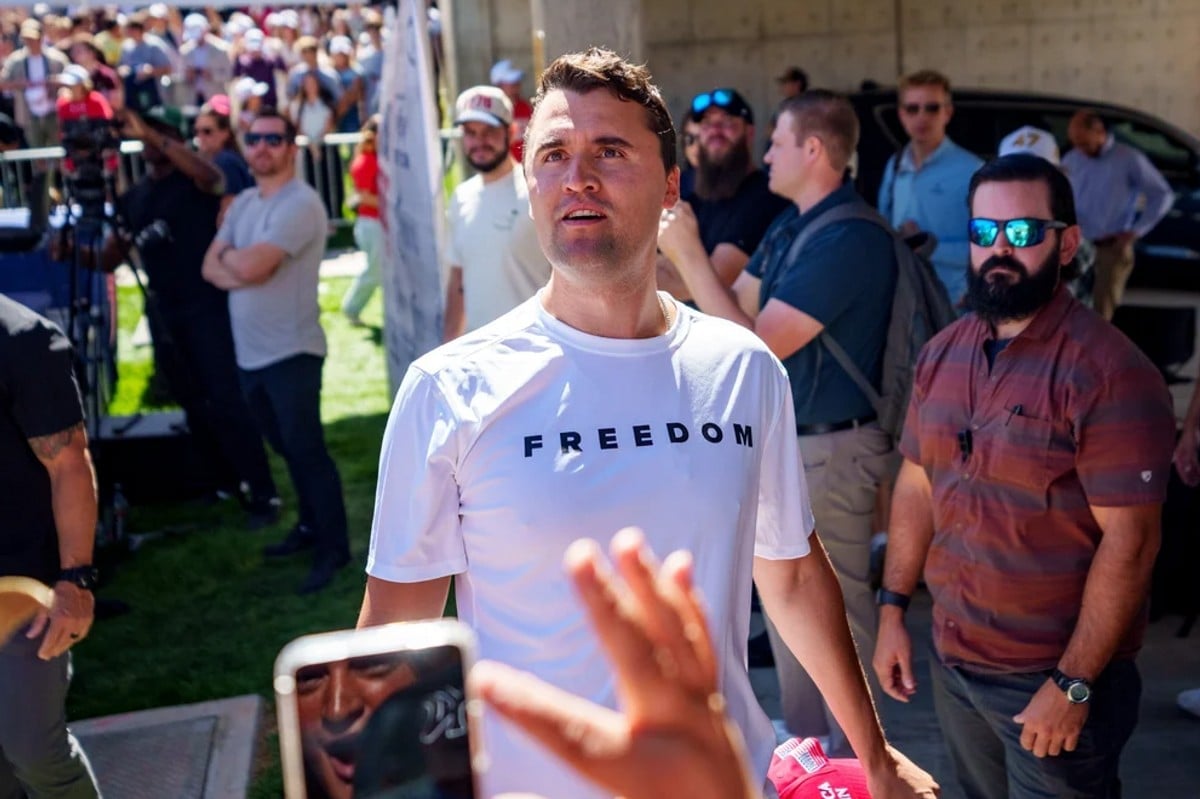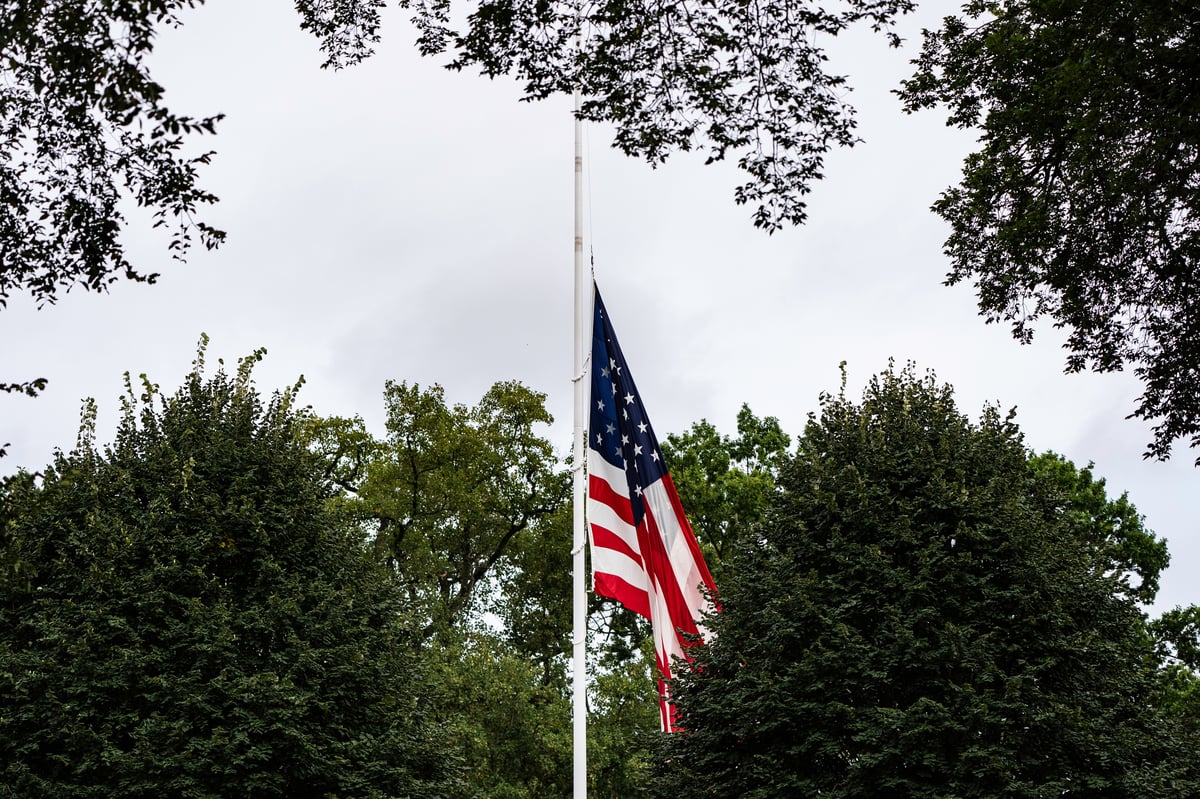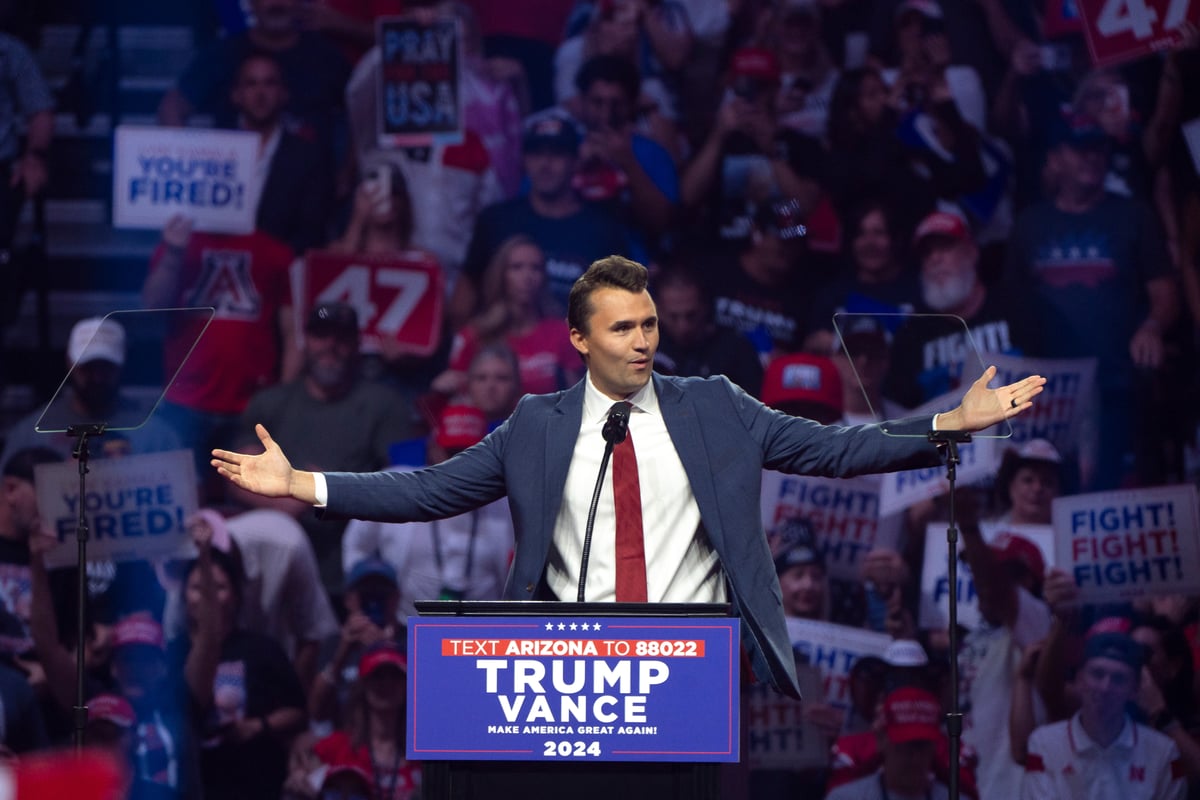
If you want to support independent women's media, become a Mamamia subscriber. Get an all-access pass to everything we make, including exclusive podcasts, articles, videos and our exercise app, MOVE.
This article originally appeared on Clare Stephens' Substack, NQR. Sign up here.
It's just after noon, and Charlie Kirk sits under a white tent speaking into a microphone at Utah Valley University. The words, 'The American Comeback Tour' and 'PROVE ME WRONG' are printed on the tent in the colours of the American flag.
He's in front of an audience of thousands, and somewhere among them, there's a line of people waiting to ask him a question. Many of them want to debate him — a spectacle that's gone viral online in recent years. He's a fast talker, and speaks with absolute conviction. It's infuriating to his opponents.
Kirk is asked how many transgender Americans have been mass shooters over the last 10 years. "Too many," he responds, without hesitation. The audience member challenges that claim, and Kirk starts to speak again, when there's a loud, unexpected bang.
By now, it's likely that millions of people all over the world have watched the moment Kirk was killed. He was shot in the neck. The sheer amount of blood meant that many witnesses, including one who spoke to ABC News, "immediately knew he was going to die."
One witness told the New York Times that for a split-second, he'd thought the shooting was part of an act.
"That lasted only about a second before I realised it was something very serious going on," he said.






























































































